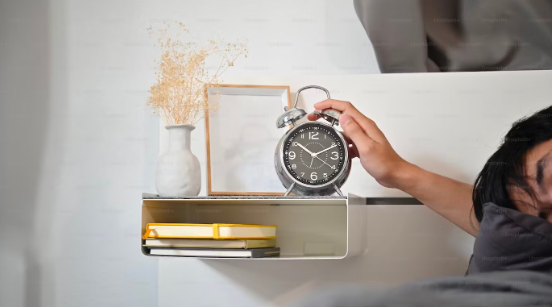Stress and Sleep: How Stress Harms your Sleep

Author: Jonathan Warren
With stress, everyone tends to react differently. Some people love the pressure, while others will do anything to avoid it. If you're prone to being a bit of a stress-head, and often find yourself struggling to drift off for the repetition of to-do lists tapping away at your brain, read on and find your way to relax.
When you feel stressed, some of the most common symptoms include feeling low, worried, unable to manage your normal workload and feeling generally irritable. As well as affecting you mentally, stress can have some physical implications too, such as panic attacks, headaches, feeling sick and the inability to sleep.
A lack of sleep caused by stress or any other problem can be troublesome for your general wellbeing, as well as your health. If you're not getting enough sleep, you might start to find it increasingly difficult to concentrate, not to mention plough through your growing list of tasks successfully, adding to the stress you were previously feeling.
As sleep is the time when your body reboots itself, sometimes not sleeping can have a negative impact on your immune system. This is why people who are constantly tired seem more susceptible to coughs and colds, which can often make your lack of sleep even more difficult to correct. But fear not, here we're providing a solution.
Stress-reduction techniques
In a bid to remedy those feeling the pressure, we've collected some tips on how you can help yourself to keep calm, and make sure you catch those all-important Zs.
Sometimes, the old fashion ways are the best. Writing a good old list and making a plan of your tasks can make a big difference in reducing stress. You can allocate time to each job (and stick to it), and make sure you factor in some time for breaks too.
Treat yourself! Go out for a nice meal, head to the cinema or simply have a night in with a takeaway and friends - taking the time to relax and have time out is so important. Winding down for a little while before you go to bed can also help you switch off, so call up your mates, get those takeaway menus ready and nestle down for a chilled night in.
Learn to say no. Once you've figured out what it is that's causing you stress, learning to say 'no' can give you the freedom to relax. Whether that's a 'no' to working extra hours, a 'no' to a last-minute trip or even just a 'no' to yourself when you have work to do but find yourself procrastinating - the power of the 'no' is in your hands!
Meditate. Meditation can work for many people to help them relax and prepare for sleep after a busy day, and it's not difficult to do. You don't need any special equipment or clothes, just yourself and some peace and quiet. To get started, you can download the popular Headspace app, as a quick way to get stuck in to meditation.
Taking a few simple steps to get things in order can make all the difference when you're going through a stage on being unable to sleep. Try out a few tips and feel free to let us know how you get on using the comment box below!
Sources
http://www.nhs.uk/Livewell/tiredness-and-fatigue/Pages/lack-of-sleep-health-risks.aspx
http://sleepfoundation.org/ask-the-expert/stress-and-insomnia
http://www.mind.org.uk/information-support/tips-for-everyday-living/stress/signs-of-stress/#.VSTl_fnF-MU
http://www.helpguide.org/articles/stress/stress-management.htm



